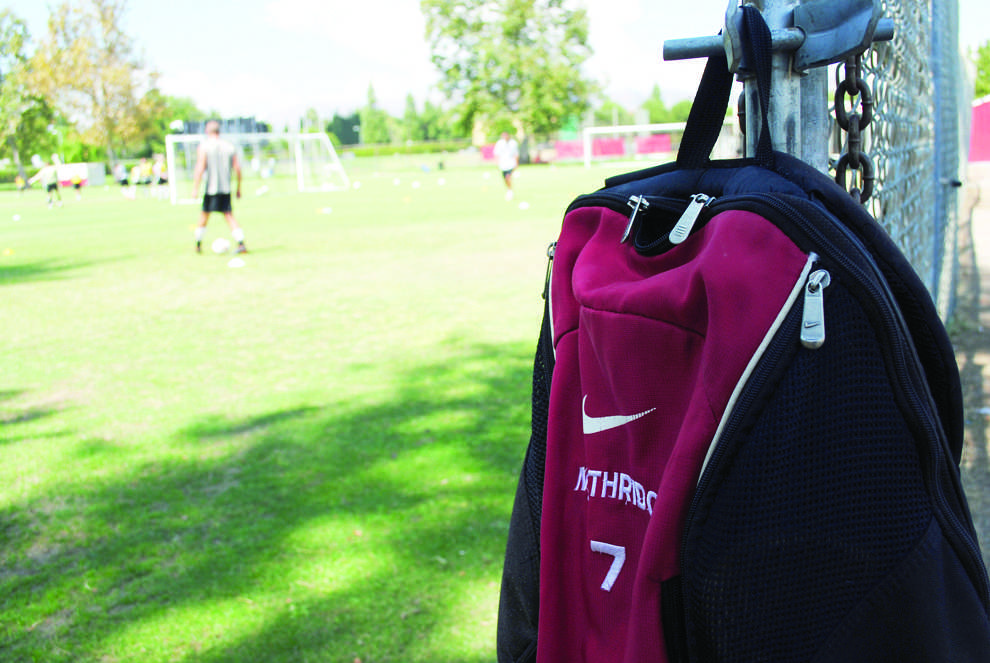
Athletic programs at CSUN are trying to set higher standards for their student-athletes after the men’s basketball team was penalized for not meeting academic requirements last year.
The basketball team has been barred from playing in the postseason after it received an 871 NCAA Academic Progress Rate (APR), which is below standards for collegiate sports.
APR tracks the progress of student-athletes, as well as the graduation rates of sports programs. Teams need to at least meet an average score of 930 to avoid being penalized, according to the NCAA.
Men’s basketball head coach Bobby Braswell was unavailable for comment on his team’s performance.
Though the basketball team failed to meet their requirements, other CSUN athletic programs are earning the grade.
Matadors cross-country team boasts a perfect score of 1000.
“The first thing I told (my athletes) is that we’re raising the bar academically,” said Avery Anderson, head coach of cross-country and track and field at CSUN.
In his first year as head coach, Anderson said he wants his athletes to perform better in the classroom. Last year, the team had a GPA average of 3.0, but Anderson said he wants it higher.
“The easiest way to do well athletically is to do well academically,” he said. “It just makes it easier to do what we need to in terms of the athletic-side of things when we’re taking care of business on the academic side.”
An APR score can make a team appear on top of their academic game, but Anderson said it’s not as clear as people think.
It “can be a little deceiving, in that there are other factors that go into it,” he said. “I don’t think that it tells the whole picture.”
Jim Bracken, head coach of CSUN men’s golf, said his small team puts golf’s APR at a disadvantage because they have limited points.
Bracken’s team received a 926, just below the required 930, but was given an exception because of the team’s size.
But size is not the only thing that matters when it comes to academic progress scores.
A few years ago, two golf players left the program before graduating — one to play professional golf, and the other to attend PGA Tour school, Bracken said. The early departures lowered their team’s APR.
Men’s golf has improved on their APR since, and Bracken said he does everything he can to help his athletes with their grades.
“I want all my (athletes) to graduate, but you can only do what you can do,” he said. “I can’t do anything else.”
Bracken said he checks in with his academic advisers at least three to four times per week, and gives his athletes time off from practice for tests and class.
“I’m very proactive on how they are doing,” he said.
Even when Bracken gives his athletes extra time for work, he can be surprised by the outcomes.
“I look at grade reports three weeks before finals, and everything’s good,” he said.
But when it comes time for finals, Bracken said the momentum did not stick.
Student-athlete success in the classroom comes down to the students themselves, Bracken said.
Rafael Garcia, co-captain of CSUN men’s soccer, is graduating this fall semester, but it has not been an easy road for him.
“There are challenges that come with athletics, such as traveling and having games during the semester,” Garcia said. “It’s definitely a challenge being a student-athlete.”
Garcia said he gives priority to his academics first and focuses on athletics after, but added he would not be graduating without the help of his athletic department and the services they offer.
“I take advantage of all the resources that are available,” he said. “Tutoring and mentoring programs, in my opinion, have helped me a lot. I couldn’t be happier with the programs that they offer here.”
Although the men’s basketball team was penalized for not meeting NCAA requirements, Anderson said all teams need to abide by it, no matter how flawed they may think it is.
“If that’s the standard, then you need to figure out how to live within the standard,” he said.





